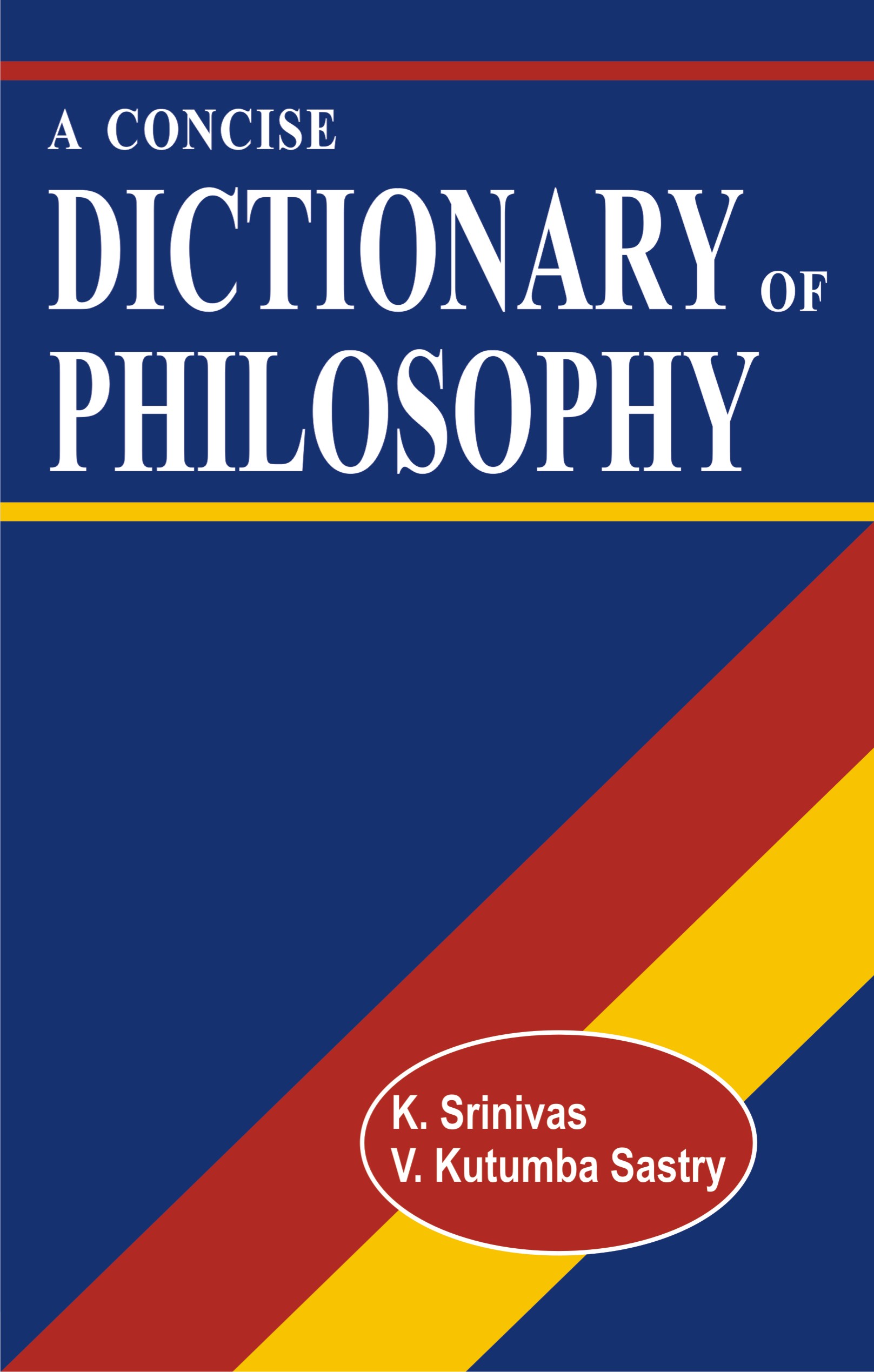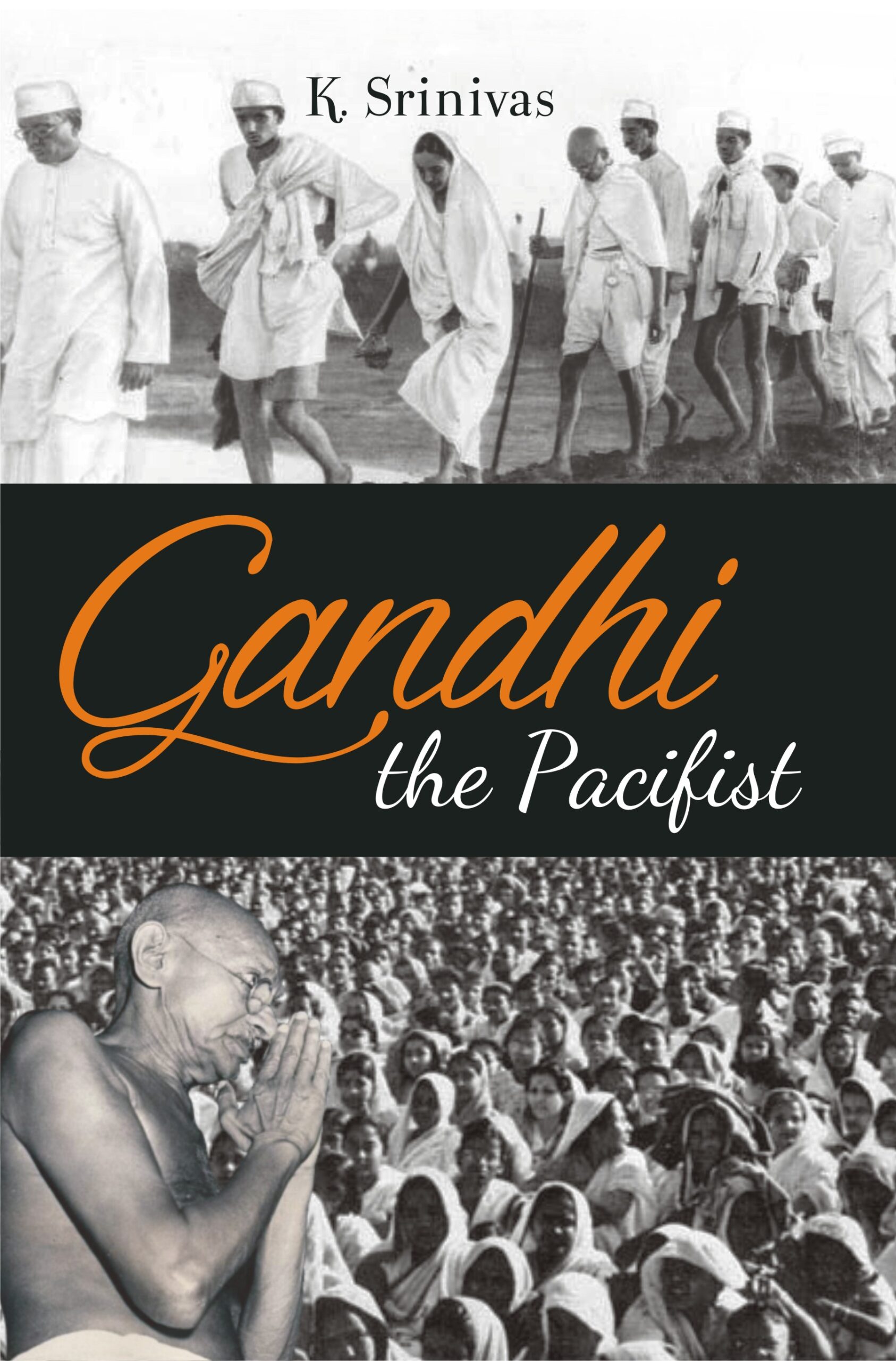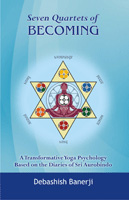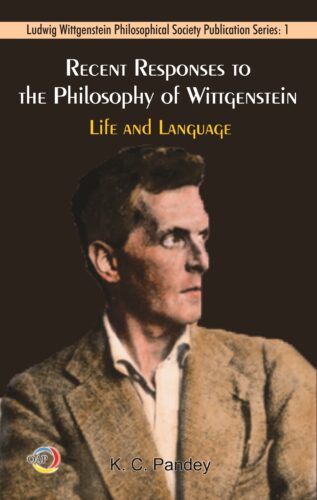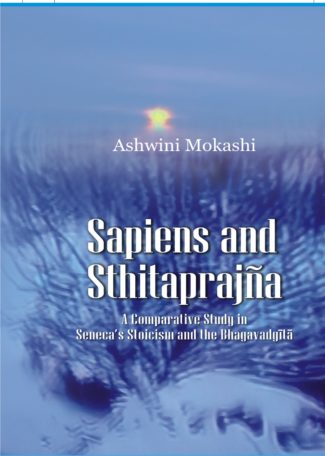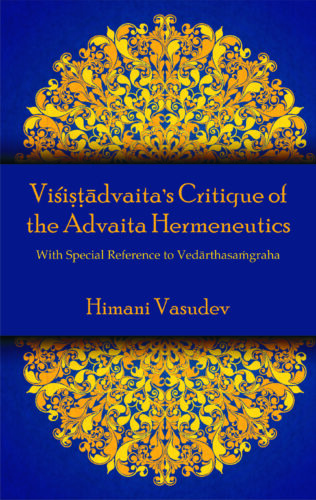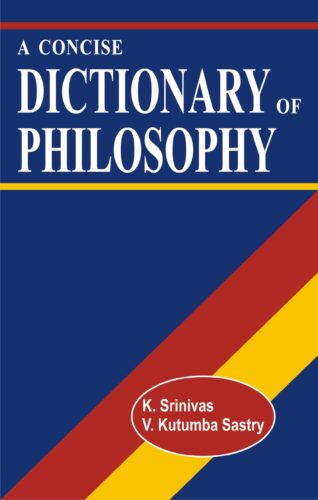

Concise Dictionary o...
Concise Dictionary of Philosophy (PB)
by: K. Srinivas , V. Kutumba SastryThis dictionary serves as an immediate reference book to the teachers and the students of philosophy and also to the general readers. It covers as many as seventeen hundred entries that include the most commonly used philosophical terms of the East and the West and the brief biographies of prominent philosophers of the Orient as well as the Occident.
₹500.00 Original price was: ₹500.00.₹450.00Current price is: ₹450.00.
ISBN: 9788124604014
Year Of Publication: 2007
Edition: 1st
Pages : xi, 426
Language : English
Binding : Paperback
Publisher: D.K. Printworld Pvt. Ltd.
Size: 23 cm.
Weight: 750 gm.
This dictionary serves as an immediate reference book to the teachers and the students of philosophy and also to the general readers. It covers as many as seventeen hundred entries that include the most commonly used philosophical terms of the East and the West and the brief biographies of prominent philosophers of the Orient as well as the Occident.

- Sale!Seven Quartets of Becoming by: Debashish Banerji
₹1,200.00Original price was: ₹1,200.00.₹1,080.00Current price is: ₹1,080.00.Groomed in a modern academic tradition and post-Enlightenment ideals of creative freedom and social critique, Sri Aurobindo (1872-1950) turned his attention to yoga and the limits of consciousness in its ability to relate to and transform nature. In the process, he documented scrupulously his experiments and experiences based on a synergistic existential framework of practice.
Debashish Banerji correlates the approach to yoga Sri Aurobindo took in his diaries with his later writings, to derive a description of human subjectivity and its powers. Banerji constellates Sri Aurobindo’s approach with transpersonal psychology and contemporary lineages of phenomenology and ontology, to develop a transformative yoga psychology redefining the boundaries and possibilities of the human and opening up lines of self-practice towards a wholeness of being and becoming.
Both scholar and Yogi, Aurobindo (1872-1950) carefully documented the unfolding of spiritual consciousness starting shortly after his deep revelatory experiences while in prison in 1908. His observations were recently published in a two volume set, The Record of Yoga. Debashish Banerji has analyzed this work and offers a detailed, clear, systematic and inspirational interpretation of how the Yoga of Sri Aurobindo may be understood and practiced.
Þ From the `Foreword’ of
Prof. Christopher Key Chapple
Doshi Professor of Indic and Comparative Theology Loyola Marymount University, Los Angeles, (USA) - Sale!Recent Responses to the Philosophy of Wittgenstein by: K. C. Pandey
₹1,800.00Original price was: ₹1,800.00.₹1,620.00Current price is: ₹1,620.00.The essays contained in this anthology explore philosophical issues which have often been raised during recent debates and discussions in Wittgensteinian epistemology, theology, logic, ethics, religion, social science, cultural studies, psychology and language. It is based on the idea that Wittgenstein’s thoughts have not only been interpreted by the academicians in philosophy, but have been used as a method in many other fields of Humanities and Social Sciences as well. Keeping in view this idea, the book gives a fresh interpretation from the perspectives of recent issues raised on life and language in the philosophy of Wittgenstein. It discusses Wittgensteinian issues through the perspectives of the Indian as well as the contemporary world.
- Sale!Sapiens and Sthitaprajna by: Ashwini A. Mokashi
₹800.00Original price was: ₹800.00.₹720.00Current price is: ₹720.00.Sapiens and Sthitaprajna studies the concept of a wise person in the Stoic Seneca and in the Bhagavadgita. Although the Gita and Seneca’s writings were composed at least two centuries apart and a continent apart, they have much in common in recommending a well-lived life. This book describes how in both a wise person is endowed with both virtue and wisdom, is moral, makes right judgements and takes responsibility for actions. A wise and virtuous person always enjoys happiness, as happiness consists in knowing that one has done the right thing at the right time.
Both Seneca and the Gita demand intellectual rigour and wisdom for leading a virtuous and effective life. They provide guidelines for how to become and be wise. Both systems demand a sage to be emotionally sound and devoid of passions. This leads to mental peace and balance, and ultimately tranquillity and happiness. While surveying these similarities, this study also finds differences in their ways of application of these ideas. The metaphysics of the Gita obliges the sage to practise meditation, while the Stoics require a sage to be a rational person committed to analysing and intellectualizing any situation.
This comparative study will be of interest to students of both Ancient Western and Ancient Indian Philosophy. Practitioners of Stoicism and followers of the Gita should find the presence of closely-related ideas in a very different tradition of interest while perhaps finding somewhat different prescriptions a spur to action. - Sale!Vedanta Science and Technology: A Multidimensional Apporoach by: Girish Nath Jha, Bal Ram Singh, Sukalyan Sengupta,
₹3,000.00Original price was: ₹3,000.00.₹2,700.00Current price is: ₹2,700.00.Vedānta texts have been well known for their richness in fundamental scientific and technological principles with strong potential for research and development today. In fact, much of ancient India’s remarkable achievements in science and technology can be credited to Vedantic texts.
This volume – proceedings of the 22nd International Congress of Vedanta held during 27-30 December 2015 at Jawaharlal Nehru University, New Delhi – features 53 scholarly articles from a wide variety of areas of study. The 22nd Vedanta was a confluence of scholars from various disciplines and the papers in this volume bear the imprint of an intense discussion that is usually expected from a good Vedanta seminar. Though the majority of the papers are in English, a few are in Sanskrit and Hindi as well. The papers are grouped under Vedānta Studies, Vedānta and Philosophy, Vedānta and Science, Vedānta and Culture, Applied Vedānta, and Digital Access and Search of Sanskrit Texts.
This multidimensional approach extends the core scientific ideas of Vedānta to social, cultural, aesthetic and religious aspects of studies, creating a wide spectrum of intellectual discourse and trying to discover fundamental scientific and technological aspects of Vedānta studies.
Being a worthwhile addition to Vedānta studies, this volume should invoke keen interest among all those who are deeply into it, be a student, a researcher or a common reader. - Sale!Visistadvaita’s Critique of the Advaita Hermenqutics by: Himani Vasudev
₹500.00Original price was: ₹500.00.₹450.00Current price is: ₹450.00.Vedānta is the very heart of Indian philosophy. The various schools of Vedānta have been explored under diverse categories including ontological and epistemological, but they are a storehouse of so much more. “Hermeneutics” in simple words can be the theory of interpretation and this book has studied the critique of the Advaita hermeneutics by Rāmānujācārya based on Vedic statements like tat tvam asi, tadaikāta bahu syāma, neha nānāsti kiñcana and many others in his book Vedārthasaṁgraha which mirrors a complete vision of the Upaniṣads. Rāmānujācārya has shown how the Śruti statements can be seen in a coherent manner resolving the conflicts of bheda and abheda. The nature of a word and its various śaktis, followed by how successful are words in describing the concepts of sat, cit and ānanda, are also discussed here.
This book is an initial effort in the hermeneutic studies of Indian texts, which have been kept limited to the scope of philosophy, theology or religion alone. Many more linguistic treasures can be found here.


